Conduct disorders (CD)
-
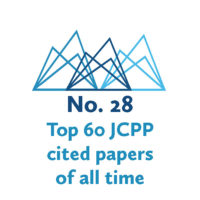
Most Cited JCPP Articles #28 of 60
Most cited JCPP papers #28 of 60: Conduct disorder and oppositional defiant disorder in a national sample: developmental epidemiology
Read more -
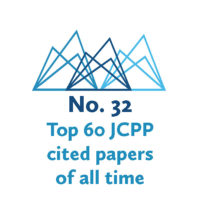
Most Cited JCPP Articles #32 of 60
Most cited JCPP papers #32 of 60: Time trends in adolescent mental health
Read more -
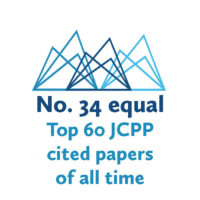
Most Cited JCPP Articles #34 of 60
Most cited JCPP papers #34 of 60: Predictors of parent training efficacy for child externalizing behavior problems – a meta‐analytic review
Read more -
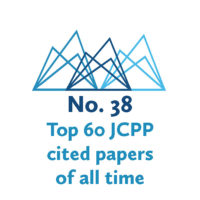
Most Cited JCPP Articles #38 of 60
Most cited JCPP papers #38 of 60: What do childhood anxiety disorders predict?
Read more -
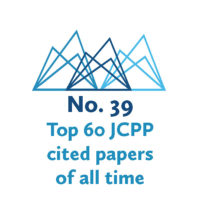
Most Cited JCPP Articles #39 of 60
Most cited JCPP papers #39 of 60: Young adult follow‐up of hyperactive children: antisocial activities and drug use
Read more -
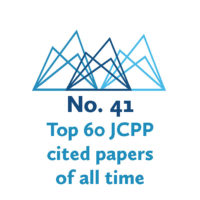
Most Cited JCPP Articles #41 of 60
Most cited JCPP papers #41 of 60: Annotation: The role of prefrontal deficits, low autonomic arousal, and early health factors in the development of antisocial and aggressive behavior in children
Read more -
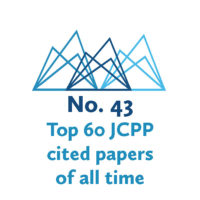
Most Cited JCPP Articles #43 of 60
Most cited JCPP papers #43 of 60: Preventing conduct problems and improving school readiness: evaluation of the Incredible Years Teacher and Child Training Programs in high‐risk schools
Read more -

Reflections on JCPP at 60… Professor Cathy Lord
For me, JCPP represented my growing awareness of the field of developmental psychopathology and the possibility that clinicians and researchers could work together to better understand how children and adolescents and families developed over time in a way that helped us better help others.
Read more -

Most Cited JCPP Articles #46 of 60
Most cited JCPP papers #46 of 60: Longitudinal pathways linking child maltreatment, emotion regulation, peer relations, and psychopathology
Read more -

Sleep partially mediates the link between adverse childhood experiences and delinquency
A recent study has now investigated the mechanisms underlying the apparent link between ACEs and high rates of delinquency in children in foster care, with a specific focus on sleep.
Read more